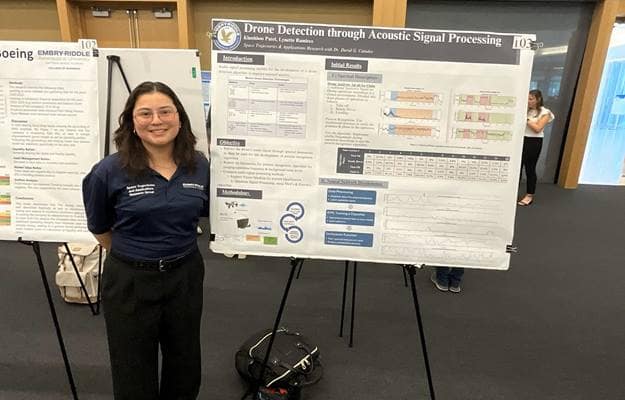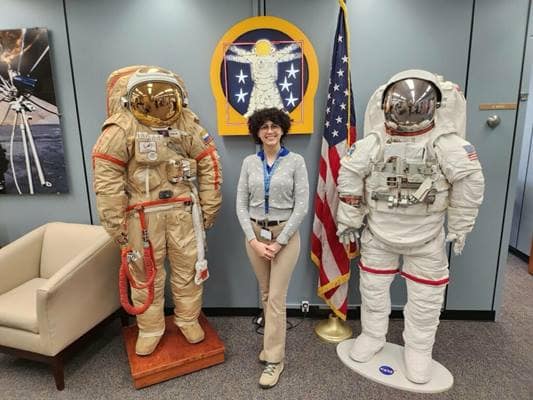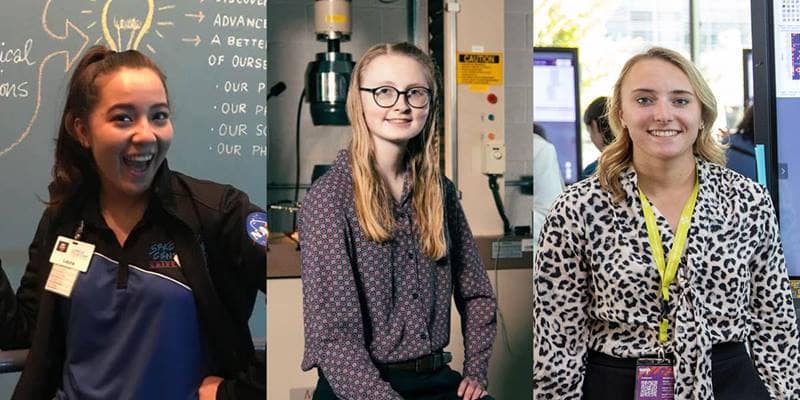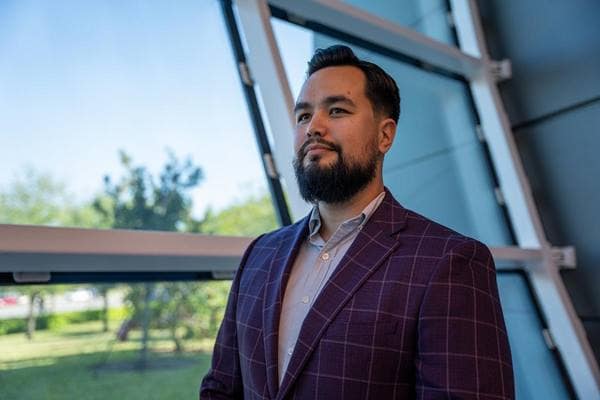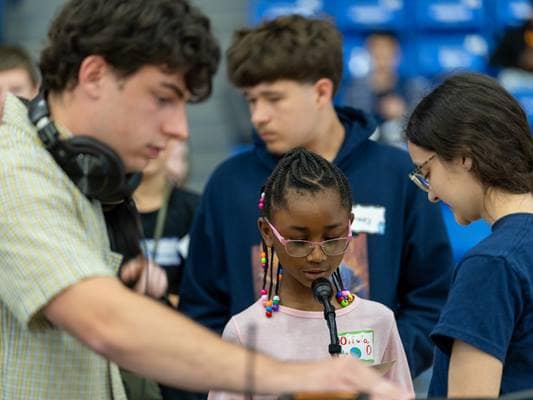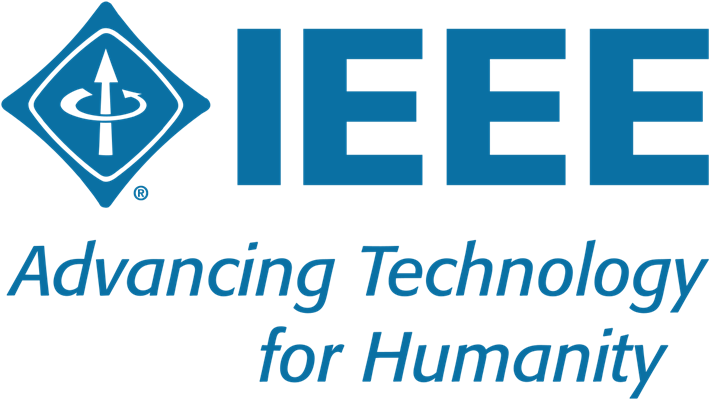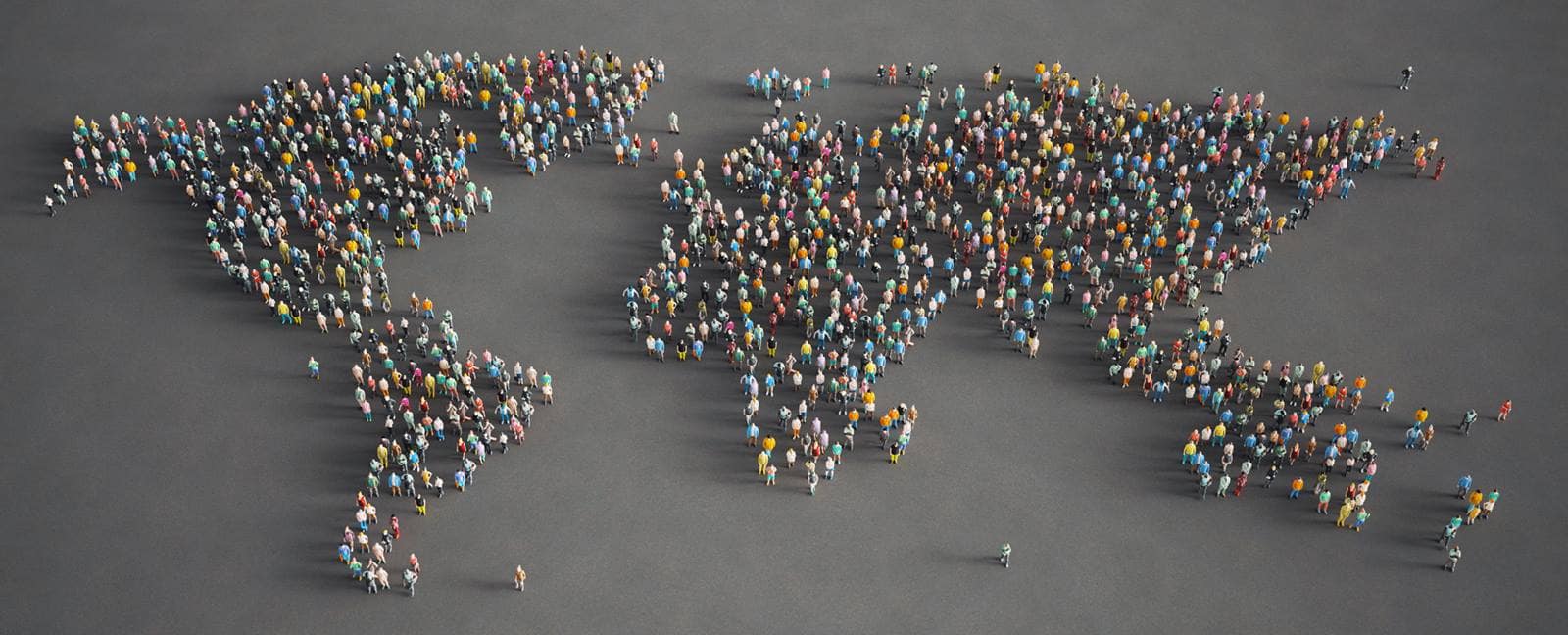
Bachelor of Science in
Global Conflict Studies
With real-world case studies, historical perspectives and faculty expertise, students learn both analytical and research skills to influence the resolution of conflict.
The Bachelor of Science in Global Conflict Studies prepares graduates to influence global conflict resolution. It’s a historical study of world conflicts and an in-depth review of conflict management policies and processes. Graduates can make a difference working for:
- private defense industries
- governments
- intelligence communities
- international aid agencies
- non-profit groups
Highly credentialed faculty in the Security Studies & International Affairs Department have years of industry experience and are experts in the study of foreign policy, genocide, history, international relations/politics and security and intelligence. They focus on student success through helpful advising, guidance in writing projects and support in seeking internships that give students hands-on experience.
Students are taught to understand the history of conflict and gain critical thinking and solution planning skills that this industry demands. They are given opportunities to put their knowledge into practice through internships and projects presented to organizations.
With class sizes much smaller than a traditional university, classroom instruction is enhanced with more complex and open discussions.
After learning through related minor courses of study, internships, study-abroad opportunities and a final capstone experience, graduates are set to serve as conflict specialists, Foreign Service officers or intelligence officers.
This degree is offered through our Security Studies & International Affairs Department in the Daytona Beach College of Arts & Sciences.
DETAILS
About Global Conflict Studies at the Daytona Beach, FL Campus
The Global Conflict Studies program at Embry-Riddle’s Daytona Beach Campus uses a multidisciplinary and multinational approach to understanding the root causes of international and human conflicts. Students will learn about:
- historical and social developments of major regions and powers of the world
- history of political and economic interactions of the regions
- theory behind conflict management
- conflict resolution through peacekeeping and peacebuilding processes
Through the examination of real-world case studies, historical perspectives and faculty expertise, students will learn both analytical and research skills to influence the resolution of conflict.
The Bachelor of Science in Global Conflict Studies degree falls under the Security Studies & International Affairs Department in the College of Arts & Sciences and is directly related to the Bachelor of Science in Homeland Security.
Students can also pursue two of Embry-Riddle’s many minors, including:
- Arabic Studies
- Business
- Communication
- Forensic Accounting
- Terrorism Studies
- Homeland Security
The Bachelor of Science in Global Conflict Studies offers students a variety of courses that use a multidisciplinary approach to provide an understanding of the root causes of human conflict. Students use in-depth analysis to learn to understand the:
- history of the major regions of the world and their interactions
- theory behind the management of conflict
- major global security challenges of the day
- foundation of methodology, technology and political processes that attempt to prevent or resolve conflicts

Study-abroad opportunities, language acquisition and cross-cultural internships provide students with a unique learning experience. Students gain a competitive edge in the marketplace with the addition of bilingual or multilingual skills in strategic languages.
Global Conflict Studies provides a foundation that prepares students who want to live and work in a multicultural environment as a(n):
- employee of a homeland defense and security enterprise
- member of the U.S. military
- foreign service officer in the U.S. State Department
- intelligence analyst for the Central Intelligence Agency
- member of USAID
- volunteer for the Peace Corps
- employee for an international corporation
- worker for the United Nations, International Red Cross or similar non-government entities
General Education Requirements
For a full description of Embry-Riddle General Education guidelines, please see the General Education section of this catalog. These minimum requirements are applicable to all degree programs.
| Communications Theory and Skills (COM 122, COM 219, COM 221 or COM 222 or COM 223) | 9 | |
| Humanities Lower level | 3 | |
| Social Sciences Lower level | 3 | |
| Humanities or Social Science - Lower or Upper level * | 3 | |
| Humanities or Social Sciences - Upper level * | 3 | |
| Computer Science | 3 | |
| Mathematics | 6 | |
| Physical and Life Sciences | 6 | |
| Total Credits | 36 | |
GCS Core Requirements
| UNIV 101 | College Success | 1 |
| GCS Required Core Courses | 12 | |
GCS 101 | Introduction to Global Conflict Studies | |
GCS 115 | Introduction to International Relations | |
SS 207 | Introduction to Research Methods | |
GCS 490 | Capstone in Global Conflict Studies | |
| Conflict Core (Select any 5 of the following, one of which must be 400 level) | 15 | |
CEGCS 396 | Coop Ed Global Conflict Studies | |
CYB 485 | War, Terrorism and Diplomacy in Cyberspace | |
GCS 208 | Human Geography | |
GCS 300 | International Conflict Resolution | |
GCS 302 | Gender Security | |
GCS 304 | Political Violence | |
GCS 306 | Theories of Nations and Nationalism | |
GCS 308 | Transnational Crime | |
GCS 310 | International Political Economy | |
GCS 314 | Religion, Conflict, and Peace | |
GCS 337 | Globalization and World Politics | |
GCS 400 | Topics in Global Conflict Studies | |
HU 341 | World Philosophy | |
or HU 345 | Comparative Religions | |
SS 325 | International Studies | |
| Or any applicable upper-level course with permission from the GCS Coordinator | ||
| Regional Analysis Core (4 of the following; 3 of the courses must focus on a different region) | 12 | |
GCS 312 | Understanding the European Union | |
GCS 322 | Modern Russian History | |
GCS 326 | Russian-U.S. Relations | |
GCS 333 | U.S. - Asian Relations | |
GCS 334 | Contemporary Africa and the World | |
GCS 336 | The Modern Middle East in World Affairs | |
GCS 353 | Early U.S. Foreign Policy | |
GCS 363 | Inter-American Relations | |
HSI 323 | Government of the U.S. | |
SS 311 | U.S Military History 1775-1900 | |
SS 321 | U.S. Military History 1900-Present | |
SS 331 | Current Issues in America | |
SS 340 | Modern U.S. Foreign Policy | |
| Or any applicable upper-level course with permission from the GCS Program Coordinator | ||
| Science and Technology Specified Electives | 9 | |
GEO 210 | Introduction to Geographic Information Systems | |
| Any 2 of the following courses | ||
CYB 155 | Foundations of Information Security | |
EC 200 | An Economic Survey | |
EC 210 | Microeconomics | |
EC 211 | Macroeconomics | |
GEO 310 | Advanced Geographic Information Systems | |
GEO 402 | Geographic Information System Applications | |
HSI 290 | Introduction to Environmental Security | |
WX 201 | Survey of Meteorology | |
| Or any applicable course with permission from the GCS Coordinator | ||
| Policy, Program Management, & Communication Specified Electives (Any 2 of the following) | 6 | |
BA 201 | Principles of Management | |
BA 308 | Public Administration | |
BA 325 | Social Responsibility and Ethics in Management | |
BA 335 | International Business | |
COM 180 | Media Literacy | |
COM 265 | Introduction to News Writing | |
COM 325 | Mass Media and Current Events | |
COM 326 | Social Media Communication | |
COM 330 | Science and Technology Communication | |
COM 350 | Environmental Communication | |
COM 360 | Public Relations | |
COM 460 | Crisis Communication | |
CSO 310 | International Space Policy and Law | |
HSI 220 | National Security Enterprise | |
HSI 315 | Critical Infrastructure Security, Resilience, and Risk Analysis | |
HSI 342 | Maritime Security | |
HU 332 | Cross-Cultural Communication | |
SP 230 | Space Policy and Law - History | |
| Or any applicable course with permission from the GCS Coordinator | ||
| Breadth Area | 30 | |
| Students are strongly encouraged to complete their breadth requirement by either two minors (minimum 30 credits total), or one minor and a "coherent block of credits" (minimum 30 credits total) which is determined with consent of GCS Program Advisor. | ||
Classes from the Core cannot be utilized as part of a Minor or "Coherent Block of Credits".
| Total Degree Credits | 121 | |
- *
Students may not use Core courses to fulfill Upper Level Humanities/Social Science Requirement.
| Freshman Year | ||
|---|---|---|
| Credits | ||
| CS 120 | Introduction to Computing in Aviation | 3 |
| COM 122 | English Composition | 3 |
| GCS 101 | Introduction to Global Conflict Studies | 3 |
| MA 120 | Quantitative Methods I | 3 |
| MA 210 | Introduction to Data Science | 3 |
| PS 116 | Foundations in the Sciences | 3 |
| SS 110 | World History | 3 |
or SS 120
|
U.S. History | |
| SS 207 | Introduction to Research Methods | 3 |
| GCS 115 | Introduction to International Relations | 3 |
| HU 14X Elective | 3 | |
| Credits Subtotal | 30.0 | |
| Sophomore Year | ||
| COM 219 | Speech | 3 |
| Physical Science Elective with lab | 4 | |
| Upper Level Humanities Electives | 3 | |
| COM 223 | Intelligence Writing | 3 |
or COM 221
|
Technical Report Writing | |
or COM 222
|
Business Communication | |
| GEO 210 | Introduction to Geographic Information Systems | 3 |
| Conflict Core | 6 | |
| Regional Analysis Core | 6 | |
| Science and Technology Specified Electives | 3 | |
| Credits Subtotal | 31.0 | |
| Junior Year | ||
| Upper Level Social Science Elective | 3 | |
| Conflict Core - 400 level course | 3 | |
| Regional Analysis Core | 3 | |
| Science and Technology Specified Electives | 3 | |
| Policy, Program Management & Communication Specified Elective | 3 | |
| Breadth Area | 15 | |
| Credits Subtotal | 30.0 | |
| Senior Year | ||
| GCS 490 | Capstone in Global Conflict Studies | 3 |
| Conflict Core | 3 | |
| Regional Analysis Core | 3 | |
| Science and Technology Specified Electives | 3 | |
| Policy, Program Management & Communication Specified Elective | 3 | |
| Breadth Area | 15 | |
| Credits Subtotal | 30.0 | |
| Credits Total: | 121.0 | |
Get Started Now:
Summary
120 Credits
Estimate your tuition by using the Tuition Calculator
View Financial Aid Information
Learn about our General Education
Find out about transferring credits to this degree
Learn more about our Veterans & Military benefits
View our Academic Calendar

